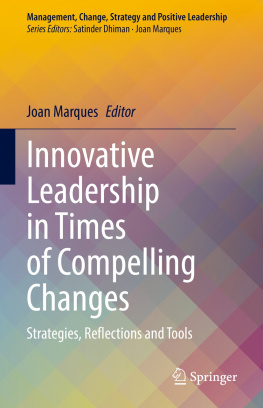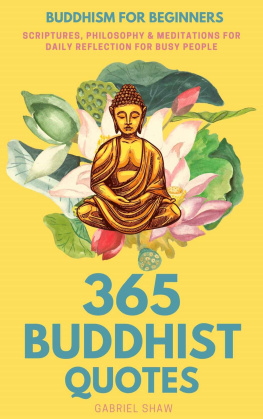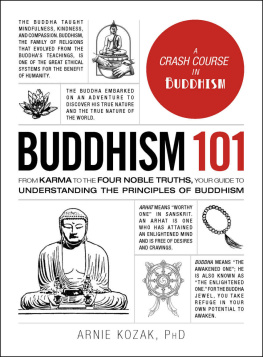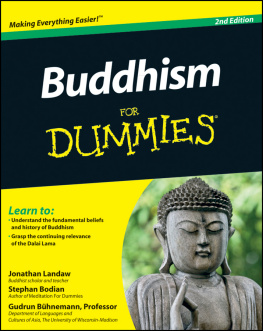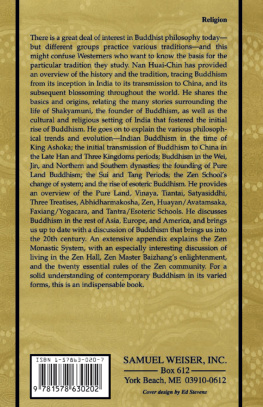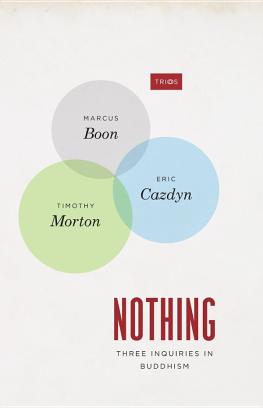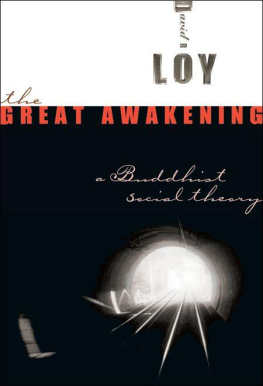Business and Buddhism
Business and Buddhism explores alternative ways of leading in the aftermath of the Great Recession and the many stories of fraud and greed that emerged. The book explores shifts in business perspectives as more value is placed on soft skills such as emotional intelligence and listening, and introduces the reader to the principles in Buddhist philosophy that can be applied in the workplace.
Buddhist practices are increasingly understood as spiritual, rather than religious, per se. In fact, Buddhism is sometimes referred to as a philosophy or psychology. In this book, Marques explores the value of applying the positive psychology of Buddhism to work settings. She outlines the ways in which it offers highly effective solutions to addressing important management and organizational behavior-related issues, but also flags critical areas for caution. For example, Buddhism is non-confrontational and promotes detachment. How can business leaders negotiate these principles in light of the demands of modern-day pressures?
The book includes end-of-chapter questions to promote reflection and critical thinking, and examples of Buddhist leaders in action. It will prove a captivating read for students of organizational behavior, management, leadership, diversity and ethics, as well as business consultants.
Joan Marques serves as director of the BBA program and is assistant professor of management at Woodbury University, USA. She has published in the Journal of Business Ethics, the Journal of Management Development, and Business and Society, and has authored or co-authored nine books on management and leadership topics.
Business and Buddhism
Joan Marques
First published 2015
by Routledge
711 Third Avenue, New York, NY 10017
and by Routledge
2 Park Square, Milton Park, Abingdon, Oxon OX14 4RN
Routledge is an imprint of the Taylor & Francis Group, an informa business
2015 Taylor & Francis
The right of Joan Marques to be identified as author of this work has been asserted by her in accordance with sections 77 and 78 of the Copyright, Designs and Patents Act 1988.
All rights reserved. No part of this book may be reprinted or reproduced or utilized in any form or by any electronic, mechanical, or other means, now known or hereafter invented, including photocopying and recording, or in any information storage or retrieval system, without permission in writing from the publishers.
Trademark notice: Product or corporate names may be trademarks or registered trademarks, and are used only for identification and explanation without intent to infringe.
Library of Congress Cataloging-in-Publication Data
Marques, Joan.
Business and Buddhism / by Joan Marques. 1 Edition.
pages cm
Includes bibliographical references and index.
1. EntrepreneurshipReligious aspectsBuddhism. 2. Leadership
Religious aspectsBuddhism. I. Title.
HB615.M378 2015
294.3373dc23
2014033786
ISBN: 978-1-138-78604-2 (hbk)
ISBN: 978-1-138-78606-6 (pbk)
ISBN: 978-1-315-76743-7 (ebk)
Typeset in Bembo
by Apex CoVantage, LLC
Contents
Business has been around since humankind began, but made enormous strides during the Industrial Revolution, and became more complex in the knowledge era. The ease of starting a business today has dramatically changed its nature and its constituents. Starting a business has never been easier, as much of it can simply be done online. Many contemporary businesses have no formal brick and mortar location, and their shoppers purchase everything from the comfort of their own home or office. Concepts about doing business have immensely changed as well: today, everyone who shops online engages in global business, as it is very easy to compare rates, quality, and delivery service in a few clicks. Business performers often find their competitors in all sizes and many countries of the world. It is therefore no secret that business has the potential to enter where very few others can.
Business is treasured and despised at the same time because it can bring change, growth, and development, but it can also suffocate, disrupt, and deprive. In the past century, and more clearly in the first decade of the twenty-first century, we have witnessed many businesses and their leaders making the news in a very negative way. Investigation reveals that many of these businesses have been performing immorally for decades, and got away with doing so because of a strong support system, shrewd leaders and accountants who managed to manipulate information they shared with external auditors, and societies that were simply ignorant of what was going on. Among those unethical performers we find representatives in almost every field of business: from energy companies that manipulated the supply of a direly needed service to increase prices, to drug companies that insisted bringing drugs in the market of which they knew the disastrous side effects beforehand; from automobile concerns that simply decided that saving human lives was not worth a recall of cars with a serious defect, to finance moguls that preyed on their clients desire to be home owners and set them up for failure.
Yet, with the changing dynamics in human society, where we get exposed to more information in one month than our forefathers witnessed in an entire life, our awareness increases. As humanitys collective awareness rises through increased global exposure, the emphasis of business is gradually changing from a one-dimensional bottom-line focus, which prevailed in the twentieth century, to a growing multidimensional social and moral responsibility approach in the twenty-first century. The advances are minuscule, and many a setback can be detected along the way, but a trend of elevated awareness is setting in and spreading nonetheless.
Buddhism has been around for more than 2,500 years, starting with its originator Siddhartha Gautama, better known as the Buddha, who acquired some valuable insights over the course of his life. These insights have been formalized in various vehicles or schools, passed on through the centuries and spread worldwide. The most commonly known schools are Theravada, the old, or smaller vehicle, and Mahayana, the larger vehicle. The two schools agree on foundational insights and teachings such as suffering, impermanence, no-self, karma, nirvana, dependent origination, mindfulness, the Four Noble Truths, and the Noble Eightfold Path. However, they also have their differences, as will be explained in this book. As an example, the Theravada tradition considers awakening to be attainable only by ordained male Buddhist monastics. The Mahayana school, however, adheres to the belief that everybody can become a bodhisattva (enlightened being).
Buddhism has always proposed openness and a welcoming approach to people from all walks of life. This principle finds its origin in the Buddhas life, as he disagreed with a number of issues that were quite common in his times, such as the local caste system, the notion that one could only be from one particular group to attain liberation. He welcomed followers from all ranks of life, and proposed a lifestyle which he called the Middle Way, based on his past experiences that excesses are not constructive to our personal and mental wellbeing. As will be described in the book, the Buddha had experienced an excessively lavish lifestyle, followed by a rigorous ascetic one, only to conclude that neither of the two brought him any insights. He ultimately engaged in deep meditation, also known as Vipassana, and attained enlightenment. Upon attaining enlightenment, he started teaching to people who were interested in his insights, and acquired quite a following, which continues to this day in the worldwide interest in Buddhism.



